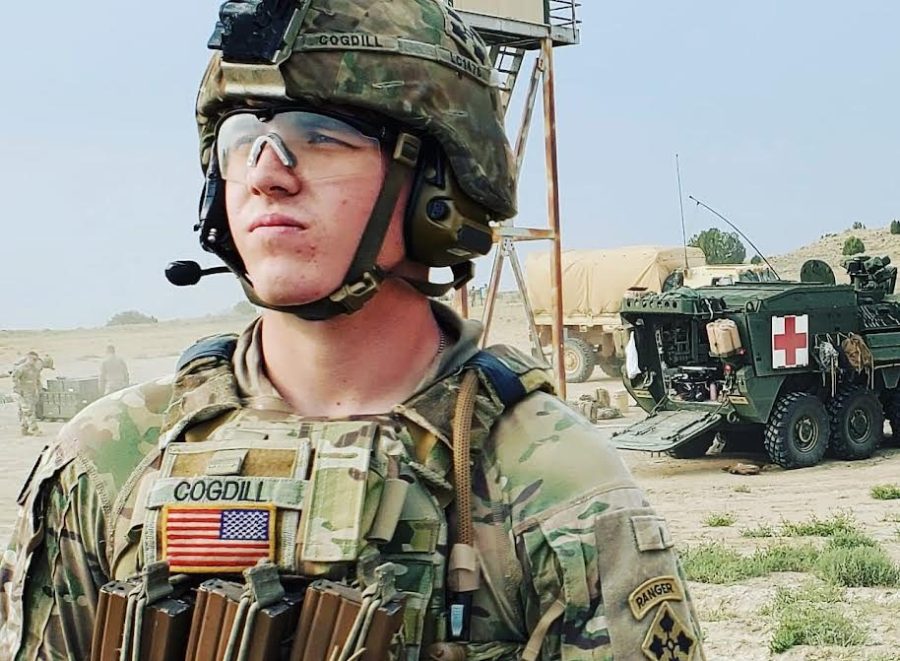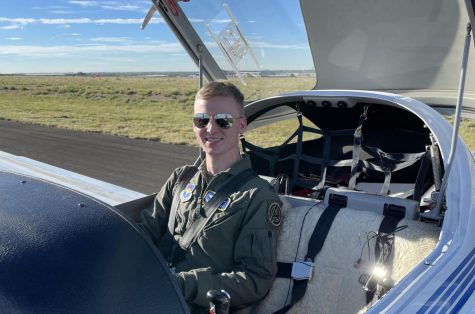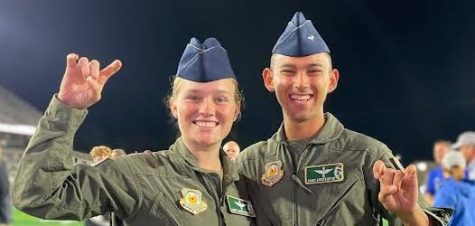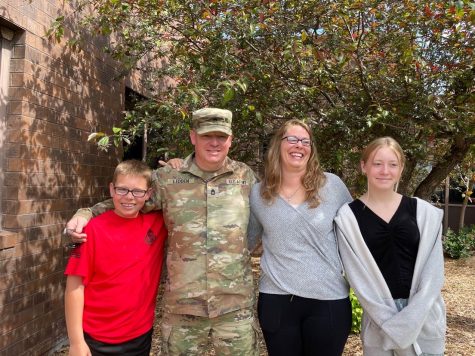Armed with character, leadership
Alumus Logan Cogdill shares Army experiences
On the fields of Fort Carson in Colorado, Yutan alumnus Logan Cogdill trains to be a calvary scout. Cogdill was stationed at Fort Carson for about two years until he moved to train at Fort Drum in New York.
The world is open after high school, and some may choose to pursue higher education, others might go right into the workforce and there are also those that simply take a break and figure out their next moves. However, some students choose to serve our country in the military, and one of these Yutan graduates is Logan Cogdill, who has been serving in the Army for the past five years.
Cogdill had been looking at a career in the Army since his early teenage years.
“I probably wanted to join the Army around 15 or 16 years old,” said Cogdill. “I wanted to do a combat arms-related job where I got to shoot things, and all the other branches pick your job for you.”
Before graduating high school in 2018, Cogdill had already learned what job he was going to be doing and the date he would be leaving for basic training, which was just weeks after graduation. He was eager to start but knew there would be tremendous changes in his day-to-day life.
“It’s a tough transition since you’re used to one thing your entire life and then you’re starting in a completely foreign environment,” Cogdill said. “But you get used to it with a little bit of time.”
All new soldiers must go through basic military training before they are ready to start learning their specific jobs. Depending on what field someone goes to in the Army, their basic training might look different, but since Cogdill was going into cavalry, his basic training included a lot of physical readiness and honing skills like teamwork, communication and mental aptitude.
“Mine (basic training) was 22 weeks long, and a lot of it was getting smoked,” said Cogdill, “which means doing a lot of push-ups and getting yelled at, and then toward the end, they start teaching you your job.”
Getting through the training is just one part of the process to become a soldier, and having certain character traits and skills is essential to be successful in certain roles.
“To be a soldier, you need to have character and competence,” said Cogdill. “If you don’t have character, nobody is going to really like you, and you need people to like you. If you don’t have competence, you can’t lead because you have no idea what to do and no one wants to follow a person’s incompetence.”
Good character traits and leadership skills are important for almost any job. What is also important, Cogdill said, is the ability to work through the pain and suffering to become the best version possible of yourself.
“Over time things do get hard, but they always come to an end,” said Cogdill. “The pain is always temporary and at my level, you can’t be a leader and be crumbling and failing. You have to be an example.”
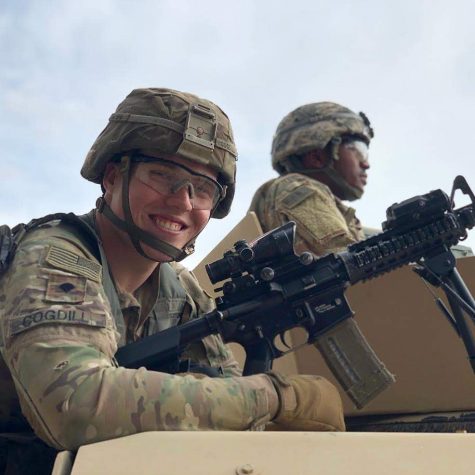
Before the Army, Cogdill didn’t have a lot of experience being in positions of leadership or being looked at as an example. He has discovered new things about himself and what he is capable of just within the past few years.
“It truly pulled out what I’m good at and drew out the skills I had. I found out where I thrive best and what kind of environments make me who I am, which I was never able to get in high school,” Cogdill said.
The new skills and traits Cogdill discovered are constantly feeding into his daily life, which can change from day to day. One day he could be training in the field and the next he could be sitting in a classroom. Cogdill’s current rank is sergeant, so he also gets the opportunity to assist and instruct younger soldiers.
“If we’re not going to the field, which is the area for training exercises, we stay back in the rear and teach classes to younger soldiers about how to do your job or we do more admin-related tasks,” said Cogdill.
While Cogdill is away performing these duties, his family back home is experiencing all the challenges and hardships that come with being a military family. Logan’s father and veteran himself, Tracy Cogdill, has learned of the hardships of having a son in the military just as his parents had.
“He’s a young man learning to lead,” said Tracy. “ It’s been hard just being a parent hoping he succeeds and that he can get through all of his trials.”
Hard as it may be, good things such as a sense of pride and happiness have come from home. Logan’s mother, Karen Cogdill, has had the great opportunity of seeing her son grow as a person through the Army.
“I admire his courage and fearlessness with the job, and I admire the way he wants to serve and even fight for his country,” said Karen. “He definitely grew up and matured very quickly, and the Army forced him to be independent from day one.”
Overall, Cogdill said the Army has changed his life forever through the skills he’s learned and the bonds he’s created. He encourages others to consider having a career in the military.
“It was the best decision I’ve ever made,” said Cogdill. “You’ll meet some of the best friends you’ll have in your life. There’s no other unity or organization that gives you a bond like that.”
Your donation will support the student journalists of Yutan High School. Your contribution will help cover our annual website hosting costs, as well as allow us to purchase equipment and produce more in-print editions.

Grayson is a senior and in his first year of journalism. He enjoys taking pictures. Outside journalism, Grayson is involved in cross country, track, NHS...

